#the hollywood blacklist
Explore tagged Tumblr posts
Photo
⬆️⬆️⬆️
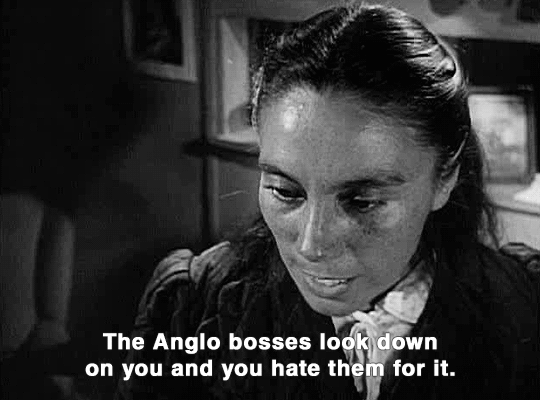
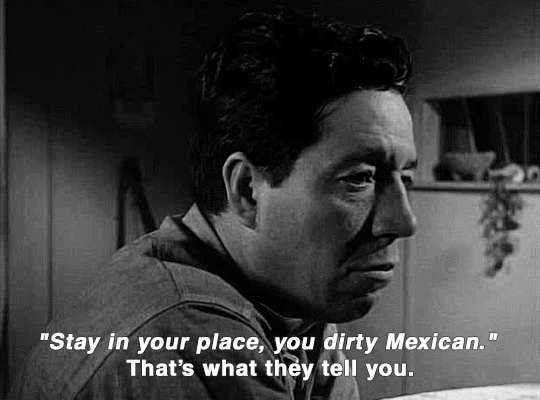
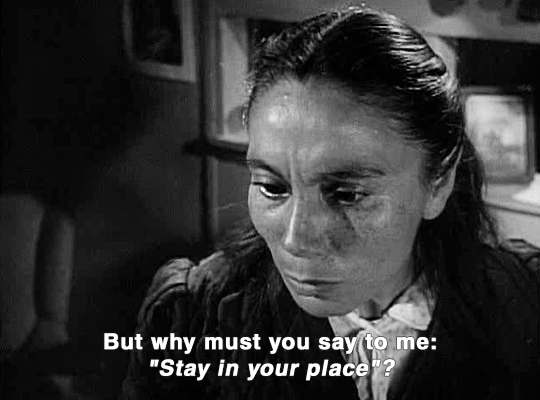
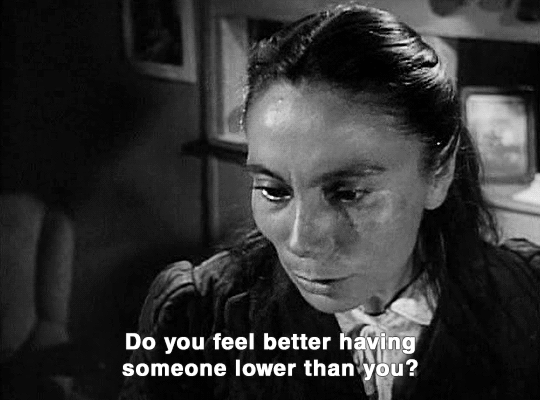
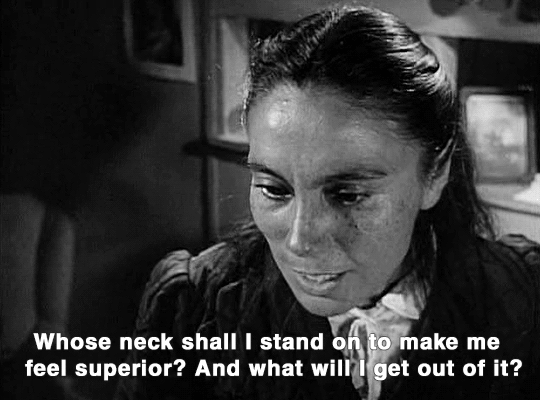


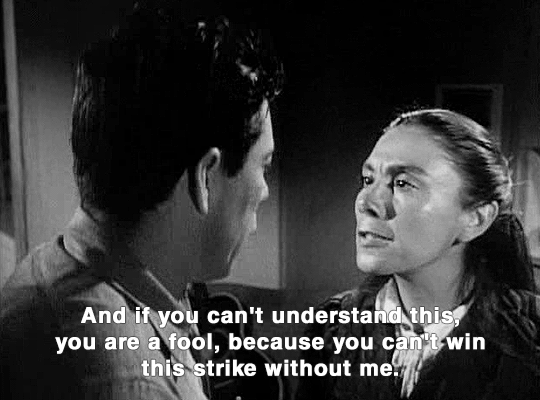
Salt of the Earth (1954), dir. Herbert J. Biberman
#salt of the earth#salt of the earth 1954#herbert j. biberman#film#michael wilson#rosaura revueltas#the hollywood ten#the hollywood blacklist#gifs#filmedit
121K notes
·
View notes
Text
Death threats for writing the truth
The fact he had death threats because of his PhD thesis just shakes me to the core. I have read it and it was very interesting

57 notes
·
View notes
Text

it’s out troc’ing thursday!!!
#I’m gonna make this a thing. for me anyways!!!#old hollywood#joan fontaine#paulette goddard#rosalind russell#(in the background there) anyways it cannot be overstated how much I think about this image!!!#what if we danced together in public while your husband and our co-star sat and watched and it’s the 1930s and we were both girls#I’m not even trying to imply anything about them I just think it’s iconic. and well if it WAS in a gay way it would be even more iconic#regardless it’s cute and I love them!#out troc’ing#<- I’m telling you I’m doing this weekly (maybe lol) so you can blacklist if you want
25 notes
·
View notes
Text
The first systematic Hollywood blacklist was instituted on November 25, 1947, the day after ten writers and directors were cited for contempt of Congress for refusing to testify before the House Un-American Activities Committee (HUAC). The blacklist denied employment to entertainment professionals due to alleged Communist ties or sympathies.

22 notes
·
View notes
Text
I was Noah Schnapp’s age when I found out about Palestine. Unlike him, I could recognize that something was wrong with Israel.
#tumblr#made with tumblr#noah schnapp#stranger things#palestine#free palestine#from the river to the sea palestine will be free#genuinely fuck this dude#19 is not 12#he’s cognitively aware what he’s doing#hope he gets blacklisted from Hollywood
79 notes
·
View notes
Text
Elia Kazan and Arthur Miller
In her review of Here in America, @jessieren pointed out that if you are going to see or stream the play, it might be helpful to have a basic understanding ahead of time about of how Kazan and Miller's relationship unfolded and as well as the historical events that influenced them.

Photo by Jerzy Kosinski, 1971
There are plenty of good books, articles, blog entries, etc. but if you want something that is thorough, to the point, and impeccably researched, I'd recommend going to this link for the PBS American Masters series.
Type "Arthur Miller" in to the "Search episodes" box and you should pull up information for both S1E1: Arthur Miller: Private Conversations and S18E1: Arthur Miller, Elia Kazan, & the Blacklist: None Without Sin.
Depending on your device, searching that way should give you a result with lots of handy links for short, easy-to-read summaries and documents related to Kazan and Miller.
If you want to go further--they then give you plenty of ways to do a deep dive.
#shaun evans#david edgar#here in america#orange tree theatre#elia kazan#arthur miller#hollywood blacklist
17 notes
·
View notes
Text

Gene Kelly rests his broken foot while the rest of the Committee for the First Amendment committee waits at the airport.
Did you happen to see The Best Years of Our Lives? The picture that won seven Academy Awards? Did you enjoy it? Well, the producer of that film, Samuel Goldwyn, has been subpoenaed. I understand supporters of the Un-American Committee didn't like that film. Did you like it? Were you subverted by it? Did it make you Un-American? Did you come out of the movie with a desire to overthrow the government?"
- Gene Kelly, 1947
#gene kelly#the far right trying to control people#the fight continues on…#classic hollywood#blacklisting
8 notes
·
View notes
Text

Love this woman
If the people in Hollywood making these lists thinks the rest of the world is going to forget what they have done by staying silent and compliant
They are deluded
#hollywood celebrities#hollywood#hollywood blacklist#fuck hollywood#palestine genocide#i stand with palestine#international criminal court#the hague#fuck zionists#critics choice awards#awards season#golden globes#the oscars#fuck your shiny trophies#performative activism#celebrity gossip#hollywood gossip
22 notes
·
View notes
Text
the fact that studio execs think that I give a shit about delays when I can a) instead give a shit about the people who make the art I consume and b) rewatch in the pale moonlight and experience every emotion they're afraid of putting into media
#this is a joke. btw.#sidenote while we're on the topic of hollywood treating actors terribly let's talk about how avery brooks was blacklisted after ds9#ds9#wga strike#sag aftra strike
52 notes
·
View notes
Text
On October 8, 1954, Salt of the Earth premiered in Mexico City.









#salt of the eart#feminist film#hollywood blacklist#art#fan art#movies#mexico city#censored films#movie art#movie premiere
5 notes
·
View notes
Text
In more SAG AFTRA news, more than 700 union members (including Mark Ruffalo, Ramy Youssef, and Melissa Barrera) signed an open letter calling on SAG leadership to protect pro Palestine members from blacklisting
#source: the hollywood reporter#sag aftra#sag aftra news#time for leadership to step up and go to bat for members being blacklisted#we should be able to publicly say killing civilians is bad#ceasefire now#arms embargo now#shout out to every union member who signed this letter. May your dream jobs come to you and may your shoots always wrap early and may#crafty always be delicious
2 notes
·
View notes
Text

#redarina#daniel knauf#the hollywood outsider#the blacklist exposed#aaron peterson#troy heinritz#the blacklist gsm
10 notes
·
View notes
Text


(I am sharing the full text of Amanda Foreman’s searing essay on her father that appeared in the Wall Street Journal. Foreman writes of a new documentary that contrasts the actions of Carl Foreman and Elia Kazan. Thank you, Amanda, for making this available.)
My Father, the Blacklist and ‘High Noon’
For filmmaker Carl Foreman, resisting McCarthyism was a patriotic duty, even if it meant the end of his career in the U.S.
Americans who worry that “cancel culture” is a growing threat to democracy may find it cathartic to watch “High Noon on the Waterfront,” a short documentary by directors David Roberts and Billy Shebar. Released last year, the film explores the meaning of moral courage in the 1950s, when the U.S. was in the grip of McCarthyism. In Hollywood, the hunt for communists and alleged subversives resulted in a blacklist that robbed the industry of some of its brightest talent for almost two decades and destroyed the lives of hundreds of people.
The documentary focuses on the divergent fates of two filmmakers, Carl Foreman and Elia Kazan, who have come to symbolize the stark polarities of the era. Both men were former members of the Communist Party, and known for tackling socially progressive themes in their work. Both were subpoenaed by the House Un-American Activities Committee (HUAC) and subsequently made films that were allegories of the blacklist. But the similarities end there.
Foreman admitted he had belonged to the Communist Party in his youth but refused to provide names of other party members. “I realize that there are some people who will never be convinced of my ‘loyalty’ to the United States…unless I name all persons I knew to be members of the Party during my own period of membership. My life would be much easier if I could oblige them. But I cannot, and will not, do so,” he stated. As a result, he was classified as an uncooperative witness and blacklisted in Hollywood.
Kazan, on the other hand, opted for self-preservation. At his HUAC hearing in 1953, he named eight people as former Party members and was allowed to continue making films.
When Foreman received his subpoena he was working on the movie “High Noon.” Knowing what was to come, he intended the script to be his personal testimony against the blacklist. The film’s protagonist is a small-town sheriff named Will Kane who is faced with a difficult moral choice. He must decide whether to follow his conscience and try to stop a gang of outlaws from taking over the town, or listen to the townspeople who say that appeasement is the safer course of action. In the end Kane, played by Gary Cooper, confronts the outlaws alone.
Elia Kazan made a contrasting moral statement in the 1954 film “On the Waterfront,” which he directed from a script by Budd Schulberg, who cooperated with HUAC. It depicts the heroic struggle of a longshoreman, played by Marlon Brando, at the mob-controlled dockyard in Hoboken, N.J., who decides to testify against his corrupt bosses, despite intense pressure and threats.
To the end of their lives, Foreman and Kazan were each adamant that they had made the right decision about whether to name names. “High Noon on the Waterfront” lets the men speak for themselves, juxtaposing excerpts from their personal writings with clips from the two films. The voices of Foreman and Kazan are supplied by Edward Norton and John Turturro, respectively, adding dramatic intensity.
Carl Foreman was my father, and when I saw the documentary I found it unnerving, to say the least, to hear him speaking in Edward Norton’s voice. That is partly because I struggle to recall his real voice. I was 15 years old when he died and more interested in imitating Madonna than making clear memories of him. Just a few more years would have changed all that. But his death in 1984, when he was 69, froze our relationship at its most awkward and superficial stage.
My father’s HUAC testimony took place many years before I was born. All I really knew about it was that his unique stance had made him equally unpopular with the left and the right. He was hardly alone in refusing to name names, but he also denounced Soviet communism and disassociated himself from the American Communist Party. To the committee, not naming names made him a subversive; to his former comrades, rejecting communism made him a turncoat.
Watching “High Noon on the Waterfront” made me confront the fact that I didn’t know what my father really believed or why he had acted as he did. Why refuse to name names in the way that would cause him the most harm and suffering?
I couldn’t find the answer to this conundrum in any books on the period, so I went back to his private papers. Searching through years of correspondence, I finally found it in a letter he wrote to his agent in 1956, four years after being blacklisted. “I can give you no greater proof of my loyalty to America” than refusing to name names, my father wrote. “Everything we say about the freedom of the individual in America becomes meaningless if the individual is forced to conform to other people’s ideas of what constitutes loyalty, and if we continue to insist that everybody thinks and acts alike in our country we will not only lose the Cold War but in the long run we will find ourselves thinking and acting exactly like the Russians while professing to be their exact opposites.”
For Carl Foreman, liberty and civic virtue were democratic values worth sacrificing for. To be a good American he was prepared to be punished as a bad one. This was true moral courage.
The punishment began with “High Noon.” The movie was released in 1952 and became a huge financial and critical success, garnering six Oscar nominations. But by the time of the 1953 Academy Awards ceremony, my father’s name had become radioactive. The biggest fear of the movie’s other producers wasn’t that “High Noon” would lose the Oscar race but that it would win. None of them wanted to represent Carl Foreman on stage in the two categories he stood to win, Best Adapted Screenplay and Best Picture. In the end, they decided the matter by drawing lots.
The fuss turned out to be unwarranted. In the biggest surprise of the night, “High Noon” was shut out of all the big categories except Best Actor, which Cooper won despite his vocal support for my father. A declassified CIA file in the Dwight D. Eisenhower Library shows that at least one of the CIA’s informants in Hollywood met with individual Academy members, letting them know that a vote for “Foreman’s picture” would count as a vote against America.
My father couldn’t have attended the Oscars even if he wanted to. Having moved to England as a political exile after his HUAC appearance, he was now a political refugee. In 1953 the State Department revoked his American passport; each time he applied for it to be returned, he was told he would need to name names first. Eventually he took the State Department to court and won, getting his passport back in 1956.
My father’s defiance cost him his home, his film company, his career and his first marriage. Yet he refused to talk about it, which the English found deeply puzzling. There were a number of blacklisted Hollywood expats in London, but my father avoided joining anything overtly political. Even when job offers from British film companies dematerialized due to American pressure, he rejected all attempts to turn him into a political martyr because, he later said, it would feed anti-American sentiment: “I felt it would embarrass America at a time when it was already being embarrassed.”
His extreme self-control took its toll. The actor Kirk Douglas—who got his big break playing a troubled prizefighter in the Oscar-winning sports movie “Champion,” written by my father—recalled seeing him during a visit to London. My father seemed so forlorn, telling Douglas, “It’s OK if you don’t want to have lunch with me. I understand.” “Jesus, I thought,” Douglas wrote in his book “I Am Spartacus!: Making a Film, Breaking the Blacklist.” “This is what happens to a guy who thinks all his friends have turned on him.”
My father’s story did not end with “High Noon,” HUAC or the Hollywood blacklist, however. He went on to write the screenplays for “Mackenna’s Gold,” “The Guns of Navarone,” “Born Free” and “Young Winston.” He and another blacklisted writer, Michael Wilson, co-wrote the World War II epic “The Bridge on the River Kwai,” which won the Oscar for Best Adapted Screenplay in 1958. He also found his soulmate in my mother, Eve, while filming the “The Guns of Navarone.” They formed a deliriously happy partnership (in addition to having me and my brother Jonathan, also a writer).
The “Kwai” win remains one of the most notorious in Hollywood history. Still officially blacklisted and living in exile, neither writer was allowed to take credit for his work. The Academy Award was given instead to Pierre Boulle, the French novelist whose book had inspired the film. This fiction was maintained by the Academy even after the blacklist faded away in the 1960s. It finally became untenable when the long-lost original “Kwai” script was discovered in the UCLA archives, proving Foreman and Wilson’s authorship beyond doubt. On June 25, 1984, the board of the Writers Guild of America voted to restore the men’s names and their Oscars. My father died at 10 a.m. the next day; by then Wilson had been dead for six years.
[Follies Of God]
#Follies of God#Wall Street Journal#Amanda Foreman#Carl Foreman#articles#The Blacklist#HUAC#Hollywood blacklist#words and writing#writers
9 notes
·
View notes
Text

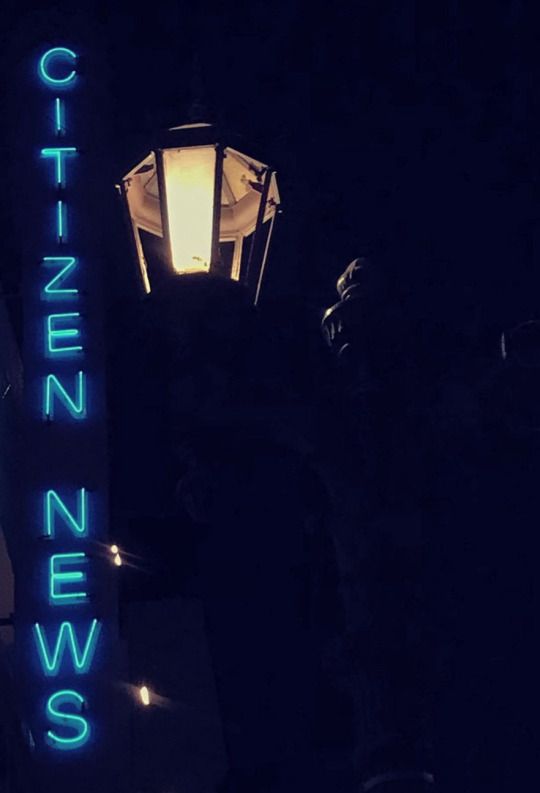

The Hollywood Citizen News, located at Wilcox and Selma, spread Red Scare hysteria throughout Hollywood.
10 notes
·
View notes
Text
Just a friendly reminder that On the Waterfront (1954) starring Marlon Brando was written as an attempt to demonize unions and support McCarthyism. Director Elia Kazan had testified before The House Un-American Committee, and ended the careers of eight of his friends by identifying them as communists and blacklisting them. Afterwards, when he agreed to direct the film, he demanded that writer Arthur Miller replace the film’s antagonists with Marxists. When Miller refused, he was dismissed.

On the Waterfront is a beautifully shot film, and a masterpiece in deep-focus photography. However, I’m not sure if many contemporary viewers realize how controversial it was at the time of its release.
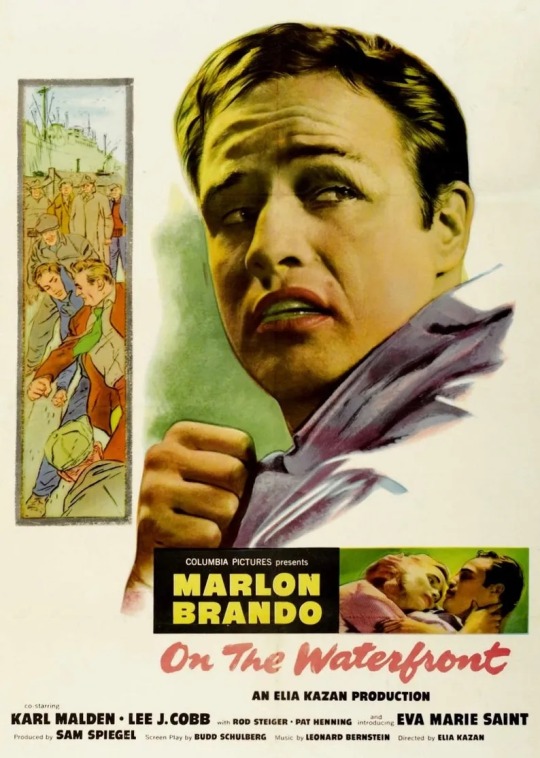
#film#classic Hollywood#communism#house unamerican committee#blacklisting#1950s movies#marlon Brando#black and white
7 notes
·
View notes
Text
Good morning!
Please click this link and read.
Remember, kids.
HUAC caused the destruction of livelihoods and lives.
It also led to Ronnie Reagan's political career. Yknow. The guy who caused an entire generation of queer people to be wiped out?
Know your Hollywood history.
9 notes
·
View notes